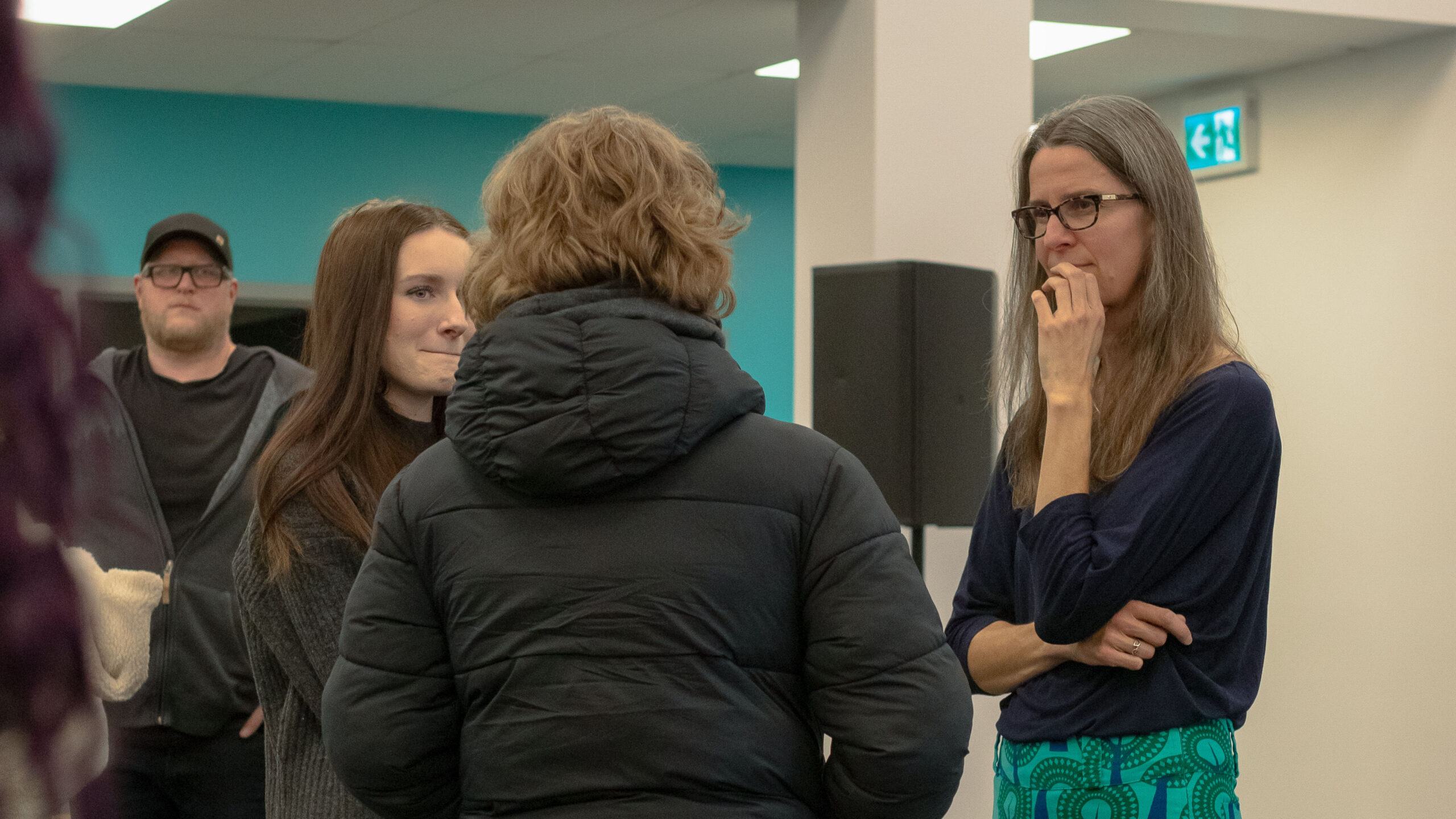For an academic working in a post-secondary institution, being promoted to the position of full professor is a significant career milestone. Though perhaps not the be-all and end-all of academic pursuits, the achievement comes with a recognition of hard work, innovativeness, and dedication to the advancement of knowledge.
At TRU, this honour is also accompanied by an Inaugural Professorial Lecture, a series of lectures where professors are given the platform to discuss their research and contributions, and to showcase their expertise amongst an audience of peers, faculty, and interested students. On Oct 28, Catherine Ortner, professor and chair of the psychology department, took her turn to do just that.
Ortner described her own journey as “unorthodox”. Beginning in the biological sciences, she said her passion for psychology was unforeseen, beginning with an introductory class she took as an elective during her undergraduate program.
“I found it to be fascinating,” she said. “To be learning about human beings, and the ways that people think and feel and behave… [It] sort of launched me onto a different path, and I switched my major to psychology.”
After graduating, Ortner found herself at a fork in the road. Would she move forward in the clinical field, or would she go into research? She applied for graduate school in Canada, where she began her master’s in clinical psychology, before pursuing her PhD. It was during this PhD that her passion for research really blossomed, leading her, almost inevitably, to this current moment.
“I spent a couple of years living in the East Kootenay and Kimberley, working in mental health counselling for a couple of years before this job came up here at TRU, and I thought, ‘Oh, this is the perfect fit for me.’”
Ortner’s area of research is on the predictors, processes and consequences of emotion regulation; the ways we decide to control our emotions in specific situations, and the factors that contribute to those choices. She stumbled on the subject accidentally, during her previous research work on mindfulness. Her personal curiosity drew her in, and soon she was diving deeper into the available literature, immersing herself in this new field that would become a significant part of her academic life.
“You start reading about a topic, and you uncover these different ideas, and it gets complicated, and that’s kind of exciting,” Ortner said. “And you go down all these rabbit holes, reading different studies, and it feels like there’s just always more to learn, and there are more nuances, and it’s quite exciting to be able to take it in many different directions. And when you talk about it with people, they’re always excited, because it applies to all of us in our daily lives.”
Ortner, dedicated to a rigorous scientific process, is hesitant to offer any definitive ‘real-world applications’ of her research.
“If anybody’s here hoping for a quick, sort of 5-step program for a healthy emotional life, I’m not going to be able to provide that for you,” she told the crowd at the start of her lecture. “Because, once you start down this path of research, it usually yields more questions than answers.”
Still, the practicality of emotion regulation feels intuitive: how can we choose the best regulatory methods for different moments in our lives? How can we handle uncomfortable feelings like shock, disappointment, guilt, loss and anger? What regulatory interventions could support people with clinical distress, like anxiety or major depressive disorders?
Speaking with The Omega, Ortner also suggested the possible applications for post-secondary students today who, she believes, are facing new challenges and responsibilities.
“I do see that students seem to have a lot more on their plates than they did, or at least what I think they did 15 years ago,” she said. “In terms of pressure, finances, often holding jobs at the same time as doing school (maybe full-time jobs, or multiple jobs), family responsibilities, and all of that. And that’s an interesting development, and I guess it makes emotion regulation all the more important.”
Yet Ortner cautions against the idea that emotion regulation is all there is, stressing several economic, social and policy factors that impact student success.
“It’s certainly not the only piece of the puzzle.”
Much of her work at the university has included students. Over the years, Ortner has taken on several psychology students to contribute to her research, with many of whom she has co-authored academic papers. The research opportunities offer students the chance to do actual research and engage with theory in ways that are more up-close and personal, while also supporting their post-graduate aspirations.
For Ortner, the benefits of this mentorship are reciprocal.
“I think, for both the faculty member and the student, what’s most important is that relationship,” Ortner said. “Relationships are just a critical part of being a human being, and so I think that’s really maybe the biggest aspect of it. Learning together, and the collaborative aspect that comes out of that, that then kind of benefits the research as well when you’re working in a relationship with someone else.”
“You know, we learn from our students, I think, as much as our students are learning from us. And it’s really neat if they come with their own voices and passions and ideas to bring to the table and put that into the research process as well.”

